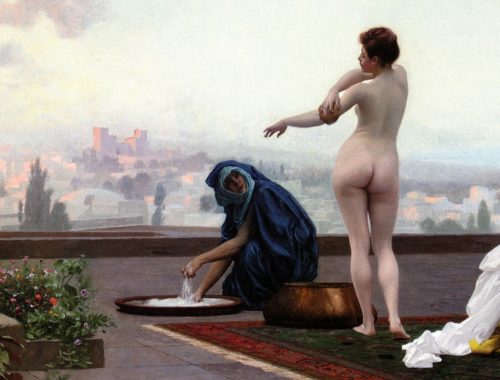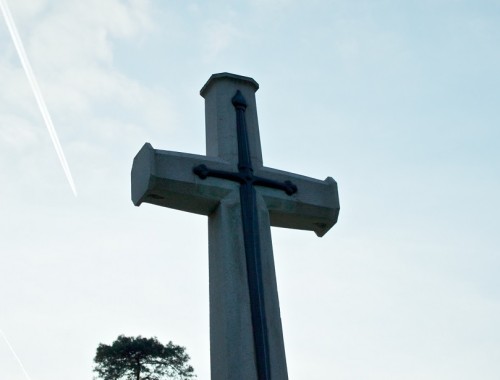Today’s guest post is from Sarah, who blogs at Sarah Over the Moon. Sarah grew up in fundamentalism, but is now a Unitarian Universalist and blogs about liberation theology, social justice, and feminism. “Learning the Words” is a series on the words many of us didn’t have in fundamentalism or overly conservative evangelicalism– and how we got them back. If you would like to be a part of this series, you can find my contact information at the top.
One of my favorite passages of the Bible is Amos 5. In this passage, God is talking to people in Israel who are exploiting the poor, taxing them more than they can handle while building luxury houses for themselves. God tells these people that God is fed up with their attempts to please God with worship and sacrifice. God doesn’t want their songs and offerings.
God wants justice. Justice rolling down like waters.
I am a feminist, an abuse survivor, and I try my best to support all oppressed groups and work toward a world where all are treated fairly, as fully human. That’s why I love this passage. I savor every drop of fairness and equality here in the world, but I know that we still live in a desert when it comes to justice. I believe that someday, as we continue to chip away at oppressive power structures like racism and patriarchy, justice will roll in like a wonderful, refreshing flood. I long for that day, and when I feel hopeless, I remember Amos 5 and I remember that God is on the side of the oppressed.
This wasn’t always one of my favorite Bible passages. In fact, it used to feel me with sickening fear. You see, fundamentalist Christians have a very different definition of “justice” than feminists and other groups working to end oppression do. In fact, the translation of the Bible that my church always used growing up (the good ol’ KJV, yes that’s the book for me!) didn’t use the word “justice” at all.
The KJV version reads: “But let judgment run down as waters.”
Maybe the connotation was different at the time the KJV was written, but now-a-days, “judgment” isn’t a word that conjures up images of the world being set right again. Yet “judgment” was a much better word to describe what the fundamentalists I grew up with thought about the justice of God.
The justice of God, to fundamentalists, has absolutely nothing to do with human ideas of justice. God doesn’t have to be fair. God doesn’t have to set wrongs right again. God doesn’t have to do anything, because he’s (the fundamentalist God is always viewed as a man) God and y’all best shut up and deal with it.
God can send hurricanes because he doesn’t like gay people. That’s the justice of God to fundamentalists. God can send a shooter to murder a bunch of children because God’s mad that public schools don’t promote Christianity. That’s the justice of God to fundamentalists. He can send a six year old to hell for sneaking a cookie out of the cookie jar before dinner. He can torture people infinitely because of finite offenses. He can expect people who have never heard of him to believe in him…or else. That’s the justice of God to fundamentalists.
Justice is a word that I had to reclaim in my own mind.
Being the super liberal UU that I am, I don’t always agree with N.T. Wright, but I love how, in Surprised By Hope, he emphasizes that the justice of God is a good thing. It’s something that a world so torn apart by oppression should be able to long for and look forward to.
The justice of God should not bring into our minds images of hellfire and brimstone. It should led us to burst into joyous song. “A thrill of hope, the weary world rejoicing, for yonder breaks a new and glorious morn.”
Not a morn where we wake to find our loved ones being tortured in hell. Not a morn where we wake to find that rapists and abusers can go to heaven because once they said “the sinner’s prayer” while little children get to go to hell forever because they never got around to repenting for the sin of crying when they were babies.
No. “In [God’s] name all oppression shall cease.”
That’s God’s justice to me (though, I tend to believe this justice will be brought about through people, and as a UU, I definitely don’t think one has to even believe in God to participate in creating a more just world).
When I think of justice as the absence of oppression, inequality, poverty, and violence, justice becomes a word—more than any other word—that fills me with hope. It helps me envision a future like the one bell hooks describes in Feminism is for Everybody:
[A world where we have replaced] the culture of domination with a world of participatory economics grounded in communalism and social democracy, a world without discrimination based on race or gender, a world where recognition of mutuality and interdependency would be the dominant ethos, a global ecological vision of how the planet can survive and how everyone on it can have access to peace and well-being. (p. 110)
This alternate definition of justice that I learned after leaving fundamentalism was one that restored my faith. It was one that helped me let go of the fundamentalist god of hate and oppression that I had grown to deeply hate and fear. It showed me a God of love that I could embrace.
A God who supports a vision for a just world that looks like bell hooks’ is a God I can follow. A God who wants liberation for the oppressed is a God that I can trust.
A God that wants justice rolling down like waters and righteous like an ever-flowing stream. That’s a God I can love.



